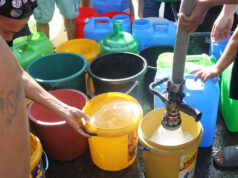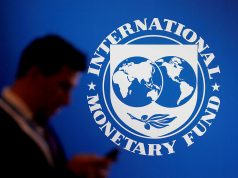Congress should investigate un-Filipino activities
Perhaps because a bunch of local musicians decided to give the National Anthem the “We are the World” treatment. Perhaps because some Filipinos began to think we’re actually Americans and feel nothing of jazzing up the “Lupang Hinirang.”
Whatever the reason, RA 8491 was legislated, requiring the Anthem to be sung or played “in accordance with the musical arrangement and composition of Julian Felipe.” Which means the Anthem can’t be rocked, bossa nova’d, indigenized, or — shudder! — rapped.
The point here is that many Filipinos felt strongly enough (correctly) for something Filipino to remain Filipino, such being so from the time of their birth and way before that, to not be arbitrarily changed by anyone or discarded summarily at the altar of globalization for some passing political or cultural fashion.
Which leads us to this: the main job of government, as provided under our Constitution, is “to serve and protect the people” and to “call upon the people to defend the State.”
The government should also: “pursue an independent foreign policy,” “strengthen the family as a basic autonomous social institution” and to “equally protect the life of the mother and the life of the unborn from conception,” to “inculcate in the youth patriotism and nationalism,” “develop a self-reliant and independent national economy effectively controlled by Filipinos,” and “foster the preservation, enrichment, and dynamic evolution of a Filipino national culture.”
Now, last week, Malaysia’s Mahathir Mohamad gave some friendly advice to the Philippines: “If you borrow huge sums of money from China and you cannot pay — you know when a person is a borrower he is under the control of the lender. So we have to be very careful with that.”
Noting also that at least 200,000 Chinese workers entered the Philippines since Duterte’s 2016 election, Mahathir said: “foreign direct investment should not involve bringing huge numbers of foreigners to live in the country, because that might disturb the political equations in the country.”
The point being made here is that we have a Filipino identity and culture, one that is the specific result of Spanish and American education, founded upon Judeo-Christian philosophy and Enlightenment thought.
Our country might have its ups and downs but one can’t deny that our values and principles purposed towards the “common good” and founded on “independence and democracy under the rule of law and a regime of truth, justice, freedom, love, equality, and peace” brought this country relative prosperity without the bloody genocide or fratricidal wars that other countries, including many of our Asian neighbors, suffered.
We respect human dignity, we believe in the rule of law, we value the family, we cherish our faith, and rejoice in our creativity.
Not for us is the soulless money-loving commercialism or militaristic adventurism or theocratic fanaticism of other countries.
That idea of the Filipino is now seemingly endangered by foreign influences, either directly or through their local sympathizers.
So let’s remember the US House of Representatives Committee on Un-American Activities, tasked with investigating disloyalty on the part of private citizens and public employees.
Initially focused on monitoring alleged Nazi conspirators, it shifted its energies to ferreting out communist infiltrators and spies. The Committee was created in 1938 but its functions have been turned over to the present House Judiciary Committee, which until recently investigated alleged Russian meddling in the 2016 US elections (the Committee found no evidence of such).
Incidentally, the HCUA is to be differentiated from the notorious Joseph McCarthy hearings. The HCUA’s most famous success was uncovering the treasonous activities of Alger Hiss (secretly a communist), upon the testimony of Whitaker Chambers.
Thus this suggestion: that our House of Representatives or Senate create a committee to investigate any activity by public or private citizens or resident foreigners tending to sow disloyalty among Filipinos, weaken national resolve and independence thus ultimately enabling foreign countries or businesses to take advantage of the Philippines, security or economic-wise, and to propose legislation in relation to such.
Admittedly, there are existing committees in Congress looking into matters relating to security or the economy that may involve foreigners: Good Government and Public Accountability, Justice, National Defense and Security, Globalization and WTO, and the West Philippine Sea Committees.
But the nature of these committees is remedial in nature, i.e., investigating alleged violations already committed, of existing laws such as the Revised Penal Code, special criminal laws, the Election Code, and the Administrative Code.
The point of the suggested Committee on Un-Filipino Activities is to examine any activity (e.g., cultural, political, academic, etc.) purposed towards a treasonous result. Such activities may not necessarily violate any law, thus not necessitating prosecution, but at least legislation can be made to forestall any possible damage to the Philippines.
Because in matters of national security or the economy, the stakes being so high, rather than wait for harm to happen, perhaps better our lawmakers act in advance to prevent even the possibility of injury to the country.
Jemy Gatdula is a Senior Fellow of the Philippine Council for Foreign Relations and a Philippine Judicial Academy law lecturer for constitutional philosophy and jurisprudence.
jemygatdula@yahoo.com
www.jemygatdula.blogspot.com
facebook.com/jemy.gatdula
Twitter @jemygatdula



